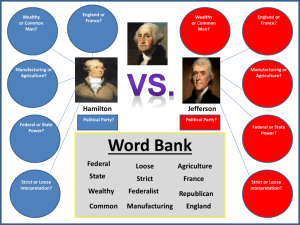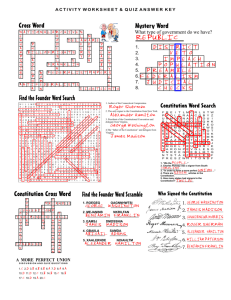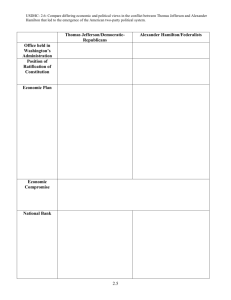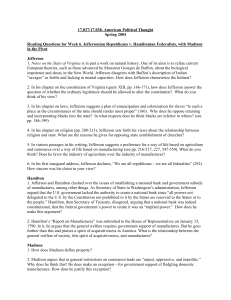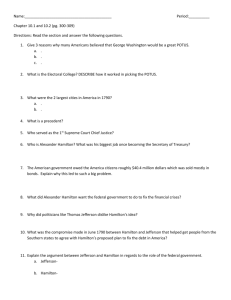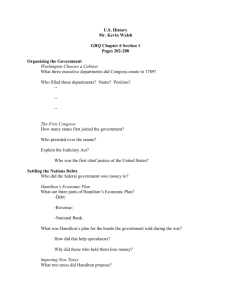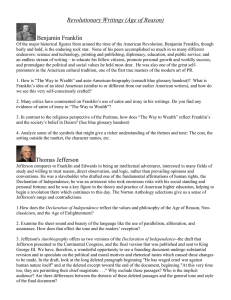America's First New Deal | againstausterity.org
advertisement
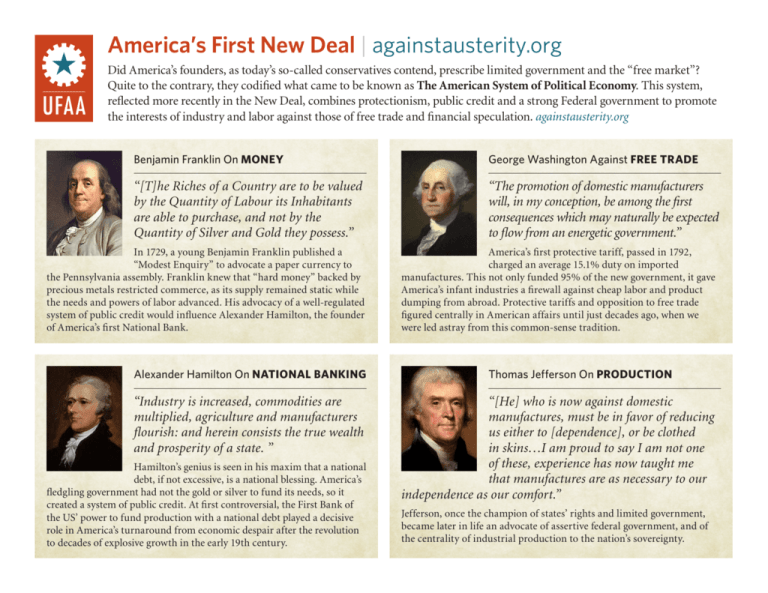
America’s First New Deal | againstausterity.org Did America’s founders, as today’s so-called conservatives contend, prescribe limited government and the “free market”? Quite to the contrary, they codified what came to be known as The American System of Political Economy. This system, reflected more recently in the New Deal, combines protectionism, public credit and a strong Federal government to promote the interests of industry and labor against those of free trade and financial speculation. againstausterity.org Benjamin Franklin On MONEY George Washington Against FREE TRADE “[T]he Riches of a Country are to be valued by the Quantity of Labour its Inhabitants are able to purchase, and not by the Quantity of Silver and Gold they possess.” “The promotion of domestic manufacturers will, in my conception, be among the first consequences which may naturally be expected to flow from an energetic government.” In 1729, a young Benjamin Franklin published a “Modest Enquiry” to advocate a paper currency to the Pennsylvania assembly. Franklin knew that “hard money” backed by precious metals restricted commerce, as its supply remained static while the needs and powers of labor advanced. His advocacy of a well-regulated system of public credit would influence Alexander Hamilton, the founder of America’s first National Bank. Alexander Hamilton On NATIONAL BANKING “Industry is increased, commodities are multiplied, agriculture and manufacturers flourish: and herein consists the true wealth and prosperity of a state. ” Hamilton’s genius is seen in his maxim that a national debt, if not excessive, is a national blessing. America’s fledgling government had not the gold or silver to fund its needs, so it created a system of public credit. At first controversial, the First Bank of the US’ power to fund production with a national debt played a decisive role in America’s turnaround from economic despair after the revolution to decades of explosive growth in the early 19th century. America’s first protective tariff, passed in 1792, charged an average 15.1% duty on imported manufactures. This not only funded 95% of the new government, it gave America’s infant industries a firewall against cheap labor and product dumping from abroad. Protective tariffs and opposition to free trade figured centrally in American affairs until just decades ago, when we were led astray from this common-sense tradition. Thomas Jefferson On PRODUCTION “[He] who is now against domestic manufactures, must be in favor of reducing us either to [dependence], or be clothed in skins…I am proud to say I am not one of these, experience has now taught me that manufactures are as necessary to our independence as our comfort.” Jefferson, once the champion of states’ rights and limited government, became later in life an advocate of assertive federal government, and of the centrality of industrial production to the nation’s sovereignty.
